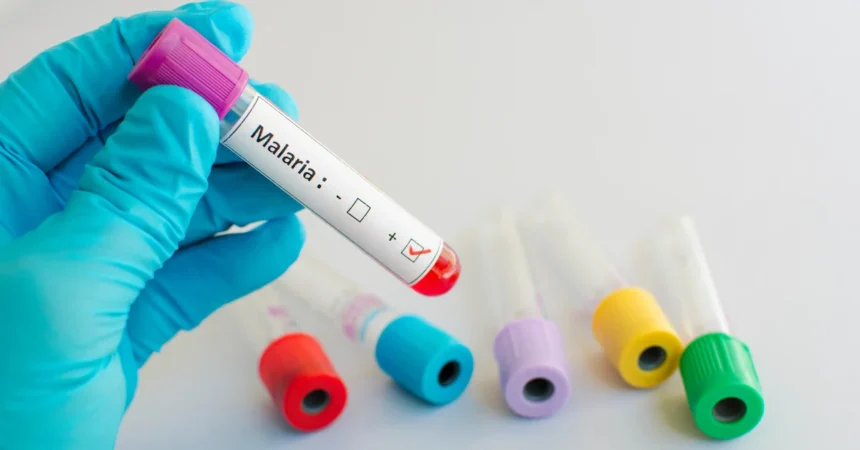On Sunday, Egypt achieved a remarkable milestone in public health as the World Health Organization (WHO) officially certified the country as malaria-free. This significant announcement marks the culmination of nearly a century of tireless efforts to eradicate a disease that has afflicted the nation since ancient times. The WHO’s recognition underscores the effectiveness of Egypt’s health initiatives and the dedication of its government and people in combating this historic public health challenge.
The certification from the WHO is granted to countries that demonstrate, beyond reasonable doubt, that the chain of indigenous malaria transmission by Anopheles mosquitoes has been interrupted for at least the previous three consecutive years. With this achievement, Egypt joins an exclusive group of 44 countries and one territory globally that have been certified malaria-free. The WHO described Egypt’s accomplishment as “truly historic,” emphasizing the extensive work put into eliminating the disease over many decades.
In a statement, WHO Director-General Tedros Adhanom Ghebreyesus remarked on the significance of this achievement, stating, “Malaria is as old as Egyptian civilization itself, but the disease that plagued pharaohs now belongs to its history and not its future.” This historical context highlights the deep-rooted nature of malaria in Egypt, where it has long been intertwined with the nation’s history and culture.
The journey to this milestone has been long and challenging. Early efforts to combat malaria in Egypt began in the 1920s when the government initiated programs aimed at reducing human-mosquito contact. These initial measures included a ban on rice and crop cultivation near homes, which were thought to attract mosquitoes. However, despite these early interventions, the struggle against malaria faced numerous challenges, particularly during significant historical events such as World War II.
By 1942, malaria cases in Egypt had surged dramatically, with over three million reported cases. This spike was largely attributed to population displacement caused by the war, which disrupted public health measures and led to increased exposure to the disease. The government’s response involved intensified efforts to control mosquito populations and educate the public on prevention measures.
The construction of the Aswan Dam in the 1960s further complicated Egypt’s fight against malaria. The dam created large areas of stagnant water, which served as ideal breeding grounds for mosquitoes. This development posed new challenges to malaria control efforts, necessitating innovative strategies to manage the risk of transmission.
Despite these setbacks, by the early 2000s, Egypt had made significant progress in controlling malaria. The WHO noted that by 2001, the country had the disease “firmly under control.” This progress was achieved through a combination of effective surveillance, treatment, and prevention strategies, including the widespread distribution of insecticide-treated bed nets and the implementation of community education programs aimed at raising awareness about malaria transmission and prevention.
As part of the certification process, the Egyptian government demonstrated its commitment to maintaining the progress achieved. Health Minister Khaled Abdel Ghaffar emphasized that receiving the malaria elimination certificate is not the end of the journey but the beginning of a new phase. He stated, “We must now work tirelessly and vigilantly to sustain our achievement through maintaining the highest standards for surveillance, diagnosis, and treatment.”
The WHO certification process also requires countries to showcase their ability to prevent the re-establishment of malaria transmission. This involves implementing robust surveillance systems that can quickly identify and respond to any potential outbreaks. The Egyptian government has committed to sustaining these efforts through ongoing investments in public health infrastructure and resources.
Malaria, a disease transmitted by mosquitoes, predominantly affects tropical countries and is caused by a parasite that can lead to severe illness and death. According to the WHO, malaria is responsible for the deaths of over 600,000 individuals each year, with 95% of those fatalities occurring in Africa. The organization reported 249 million recorded malaria cases worldwide in 2022, underscoring the ongoing global challenge posed by this disease.
Egypt’s achievement is particularly noteworthy given the broader context of malaria eradication efforts worldwide. While many countries have made progress in reducing malaria incidence, the disease remains a significant public health threat in several regions. The WHO’s report emphasizes the importance of sustained commitment and investment in malaria control strategies, as well as international collaboration to address the challenges that persist.
The success of Egypt in achieving malaria-free status can serve as a model for other countries striving to eliminate the disease. Public health experts highlight the importance of tailored strategies that address the specific challenges faced by different regions. In Egypt’s case, a combination of historical awareness, targeted interventions, and community engagement played critical roles in the successful eradication of malaria.
Furthermore, the Egyptian government’s commitment to ongoing surveillance and prevention measures is crucial to maintaining this hard-won status. Experts agree that the lessons learned from Egypt’s journey can inform global efforts to combat malaria and other vector-borne diseases. By fostering collaboration among countries, sharing best practices, and investing in research and development, the global community can enhance its ability to respond effectively to public health threats.
The announcement of Egypt’s malaria-free status has generated excitement and hope within the country and beyond. Public health officials and advocates have praised the efforts of the Egyptian government, healthcare workers, and communities that played pivotal roles in this achievement. The recognition serves as a testament to the power of collective action in addressing complex health challenges.
In addition to the immediate public health implications, Egypt’s certification as malaria-free could have broader socio-economic benefits. Malaria has long been a barrier to development in many countries, impacting productivity, education, and overall quality of life. By eliminating malaria, Egypt can expect improvements in health outcomes and economic growth, further enhancing the well-being of its population.
As Egypt celebrates this milestone, the WHO emphasizes that the fight against malaria is far from over globally. Countries that have achieved malaria-free status must remain vigilant, as the risk of re-establishment of transmission always exists. The WHO continues to advocate for sustained funding, research, and innovation to combat malaria and other communicable diseases.
The recognition of Egypt as malaria-free highlights the importance of international cooperation in addressing global health challenges. Countries around the world must work together to share resources, knowledge, and expertise in the fight against diseases like malaria. Collaborative efforts can lead to the development of new tools and strategies that can be employed to combat the resurgence of malaria in areas where it has been eliminated.
As public health initiatives continue to evolve, the global community must remain committed to the principles of equity and access to healthcare. Vulnerable populations, particularly in low-income countries, must be prioritized to ensure that they receive the necessary support to prevent and treat malaria effectively. Access to diagnostic tools, treatments, and preventative measures is essential in sustaining progress in malaria elimination.
Egypt’s achievement serves as a beacon of hope in the ongoing global fight against malaria. It illustrates the potential for success through dedication, innovation, and collaboration. As the country embarks on this new phase in public health, it is poised to contribute valuable insights and experiences to the global community engaged in the fight against malaria.
Looking forward, Egypt aims to build on this success by enhancing its healthcare infrastructure and strengthening its public health systems. The country’s commitment to monitoring and evaluation will be crucial in identifying potential challenges and opportunities for improvement in the future.
In summary, the certification of Egypt as malaria-free represents a monumental achievement in public health. The journey to this point has involved decades of hard work, collaboration, and determination. As Egypt embraces its malaria-free status, it stands as a testament to the power of collective action in addressing public health challenges.
This milestone not only celebrates the success of a nation but also serves as an inspiration for other countries striving to eliminate malaria and other communicable diseases. The world must continue to learn from Egypt’s experiences as it navigates the complex landscape of global health and works toward a healthier, malaria-free future for all.







